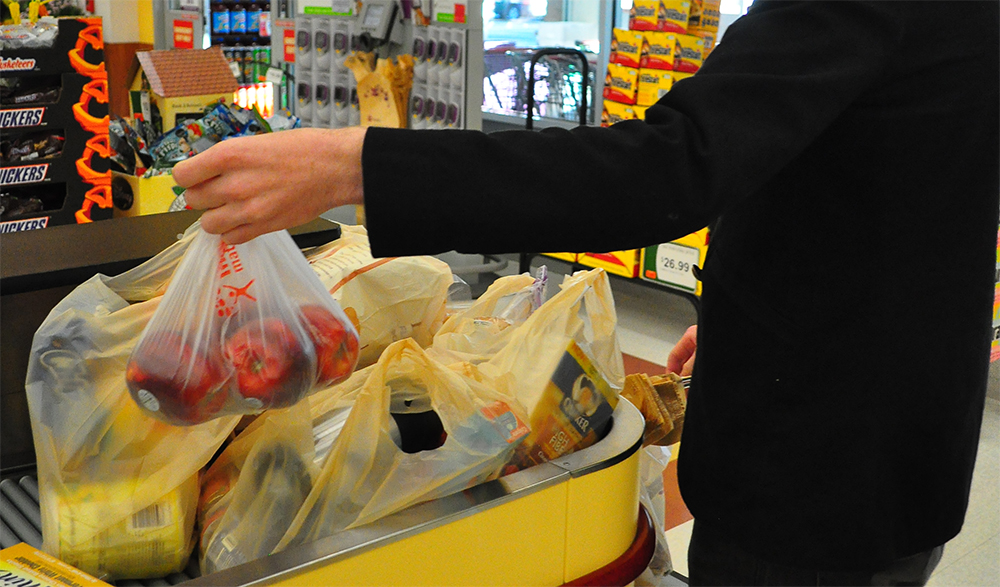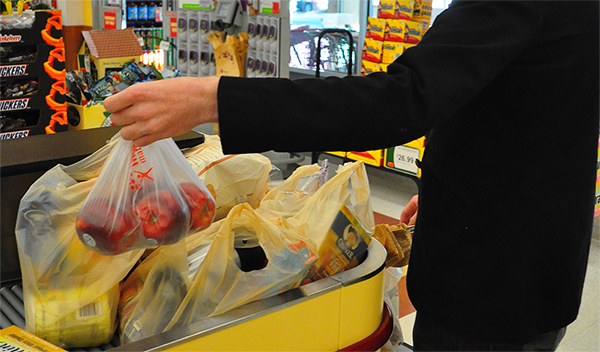

California’s rejection of the Plastic Bag Ban Law has led to increased discussion across the country, including New Paltz, about the environmental effects of plastic bags.
Bill AB1998, which was intended to encourage shoppers to use their own reusable tote bags, would have made California the first in the nation to ban single-use plastic bags in grocery stores and pharmacies starting in 2012, and in liquor stores and convenience stores in 2013 according to ABC News.
Recycling Club President and Recycling Coordinator Lauren Brois said she is disappointed that the Plastic Bag Ban Law did not pass in California.
“The law has been passed in a few places in the United States–San Francisco, places in North Carolina and Washington, DC. But if the entire state accepted the law, it would have been a fantastic example for the rest of the country,” Brois said. “[New York City] was tossing the idea around but the idea was dismissed for economic reasons.”
According to The New York Times, plastic bags are made from non-renewable resources- oil, natural gas- and are not bio-degradable. In addition, the Environmental Protection Agency estimated that only 5.2 percent of plastic bags were recycled in the United States in 2005.
“Plastic bags [are] made of oil. The stuff that we spent the whole summer watching destroy the Gulf Coast,” said Brois. “Do we need to cause all these terrible events–oil spills, global climate change, pollution and the like–by digging up fossil fuels that have been in the ground for millions of years just so we can simply carry a few items from the store to the car [or] home?”
Third-year sociology major Artie Williams said she tries to make it a point to take reusable bags to the supermarket most of the time. And when Williams uses plastic bags, she saves them and reuses them as garbage bags.
Although Williams likes to use reusable bags she has experienced plastic bag taxes in certain stores and does not like it.
“It’s a burden, it’s a hassle…it’s inconvenient,” she said. “It’s extra money that I’m spending on top of the budget that I already have for my own groceries.”
Unlike Williams, Brois said that although taxing plastic bags seems strict, it can make the most difference in the amount of plastic bags consumed, “although not exactly in creating an environmental awareness,” she said.
New Paltz’s Health and Nutrition encourages their customers to bring their own bag or box when shopping at the store said Night Store Manager Carolann Kania. The store also provides boxes instead and charges 15 cents for bio-degradable plastic bags.
“Most of the time people take a box and won’t ask for a bag,” said Kania. “We’ve been doing this for a couple of years now and most of our customers know the situation.”
People complain sometimes but most of the time it’s because they’ve never been to the store before said Kania.
Stop & Shop in New Paltz deducts five cents from their customers’ purchase for each reusable bag used.
Brois said that although taxing plastic bags or reimbursing customers for using reusable bags is a great idea that would benefit the environment, the over-consumption of plastic bags is only part of a bigger issue.
“I would like to see the plastic bags as a first step, we can change what we are carrying our products home in and then maybe it can encourage people to question what they are exactly bringing home,” Brois said. “For example, are you carrying high fructose corn syrup, lettuce that has traveled 3,000 miles across the country and grown with fertilizers and pesticides?”
